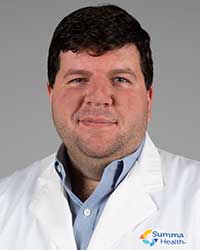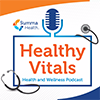Not Sure About Dry January? These 7 Health Benefits of Giving Up Alcohol Should Be Reason Enough
Posted January 13, 2025

New Year’s resolutions are a fun tradition to ring in the new year and celebrate a fresh start. If you’ve already made a list of goals for 2025, no doubt losing weight, eating healthier and exercising more top your list.
But did you know cutting back or even giving up alcohol altogether can help you achieve all of these health goals and more in one resolution? It’s true! Going dry for 30 days or more does more than just save you money, it also can bring about many physical and mental health benefits that may surprise you.
In fact, a recent study showed participants who abstained from alcohol for 30 days slept better, lost weight, had more energy, and lowered their blood pressure and cholesterol levels.
Recent research has suggested any amount of alcohol can hurt your health. Moderate to heavy drinking has been linked to heart and liver damage, weakened immune system, increased cancer risk, mood disorders and more. Alcohol also can negatively impact your life due to an increased risk of traffic injuries, risky behavior and strained relationships with loved ones.
It’s no wonder Dry January has caught on in recent years. The health benefits are enough to encourage us all to try it. So, for this New Year’s, why not trade in your martini for a mocktail version that will bring about many physical and mental health benefits your body will thank you for later on? Cheers to that!
What is Dry January?
Dry January is a recent movement to reduce alcohol consumption or avoid drinking beer, wine or liquor altogether for one month. It began in 2012 as a public health initiative in Britain, but this health challenge now has millions of participants worldwide every year.
Benefits of Dry January
The Centers for Disease Control and Prevention defines social or moderate drinking as having no more than one drink per day for women and no more than two drinks per day for men. Heavy drinking includes eight or more drinks for women and 15 or more drinks for men in a week.
When you reduce or stop drinking alcohol altogether — even for just one month — your body goes through a myriad of positive changes that can enhance your overall wellness, such as:
- Improved mood. Alcohol is a depressant and disrupts mood regulation in the brain. Over time, chronic heavy drinking can lead to anxiety and depression. Alcohol can temporarily make you feel happy and less anxious, but once it wears off, feelings of sadness and anxiety can be more intense. Giving up alcohol boosts your mood and reduces negative feelings.
- Better brain power and concentration. Alcohol destroys brain cells and can lead to poor memory, poor concentration and brain fog. When you give up alcohol, you’ll notice a clearer mind, better memory, and improved concentration and productivity.
- Improved sleep and more energy. Alcohol may make you fall asleep quickly, but it disrupts sleep patterns and causes more awakenings during the night. When you cut alcohol out, you’ll sleep better and wake up with more energy and a sharper focus.
- Better heart health. Alcohol raises “bad” cholesterol in your blood and narrows your blood vessels, which increases blood pressure. Eliminating alcohol improves your heart health and decreases your risk of heart disease and stroke.
- Improved immunity. Heavy drinking negatively impacts your immune response. And because it also disrupts your sleep, your immune system is further weakened. Giving up alcohol gives your body a fighting chance, especially during cold and flu season.
- Weight loss. Alcohol causes weight gain due to excess calories, but it also leads to cravings for salty and greasy foods. Without alcohol, you’ll not only eliminate extra calories but also have more energy to exercise.
- Reduced risk of injury. Alcohol impairs your judgment and coordination and, unfortunately, is the cause of many car accidents and serious injuries every year. Participating in Dry January reduces your — and others — risk of injury.
Dry January: Tips for success
Committing to Dry January is the first step, but staying strong for 30 days can be difficult, especially when trying to break a lifestyle habit. Below are six ways to prepare your environment and set yourself up for success.
Start small.
If 30 days seems overwhelming, try breaking up the goal into smaller chunks to build upon. For example, start by limiting alcohol to no more than one drink per day, and the next week, try no more than five drinks each week. You can journal any benefits you feel to help keep your motivation going.
Find a substitute.
There are many mocktails that allow you to enjoy a tasty beverage without any side effects or try non-alcoholic beer. Explore your options to find one you enjoy, increasing your chances of success.
Avoid tempting situations.
Don’t put yourself in situations that may cause cravings or make keeping your resolution difficult. If you go to happy hour every Friday with friends for a cold one, arrange different plans for January. Also, don’t keep alcohol in the house to tempt you.
Build a support group.
Tell friends and family about your resolution so they can support you and help keep you accountable, increasing your success rate. Hey, they may even join in, too. Doing it with a loved one can ease the pressure and make it more fun.
Find new hobbies.
Avoid activities that are centered around alcohol and replace them with new hobbies or activities you enjoy. Invite friends to go to the movies, go for a hike or pick up pickleball.
Identify reasons for drinking and look for alternatives.
Think about why you choose to drink alcohol. Is it to relieve stress? To have fun? Then, think of other ways to accomplish these goals, such as trying yoga or meditation or finding new hobbies and activities you enjoy for fun.
Signs of alcohol addiction and how to get help
If you struggle during the month or give up, it could be a sign of a problem.You can start by asking yourself these questions. If you answer yes to any of them, it may be time to talk to your doctor about an alcohol addiction.
- Do you crave alcohol and have a physical and mental dependence on it?
- Do you have difficulty controlling your drinking habits?
- Does drinking interfere with your professional and social relationships, and does it affect your health and finances?
- Do you choose to continue drinking despite these negative consequences in your life?
Then, watch for typical signs of alcoholism, which include:
- Drinking alone or in secrecy
- Experiencing guilt associated with drinking
- Making drinking a priority over responsibilities and losing interest in activities you used to find enjoyable
- Experiencing alcohol withdrawal symptoms, such as nausea, cold sweats, shakiness, fatigue, mood swings, anxiety and depression
- Having a drink first thing in the morning and always thinking about your next one
- An inability to stop or control the amount of alcohol consumed
- Loss of memory, or blackouts, from the events that occurred while intoxicated
If you think you’re struggling with alcohol addiction, talking to your primary care physician is a good first step. Your provider can help you craft a treatment plan and be a good source for referrals and medications.
You also can research local Alcoholics Anonymous meetings or call the Substance Abuse and Mental Health Services Administration National Helpline.
The first step is recognizing the problem and reaching out for help. Once you do, the effects of alcohol addiction, in many cases, are manageable and treatable so that you can get your life back.
Dry January is a good time to reflect on your relationship with alcohol and how it affects your health and relationships. You may find a way to adapt some of these healthier habits throughout the rest of the year, or maybe you’d like to extend Dry January for another 30 days. Or, maybe you realize you need help with a drinking problem. In any of these situations, Dry January is a great way to start the year off on the right foot.
If you or a loved one has an addiction, Summa Health’s Behavioral Health Institute can help. Call 330.379.8190 for more information or to schedule an appointment.
About the Author

Vitality eNews Sign Up
Receive the Summa Health eNewsletter for the latest health tips, advice and updates.
